Team Calendar: Maximizing your Team Collaboration
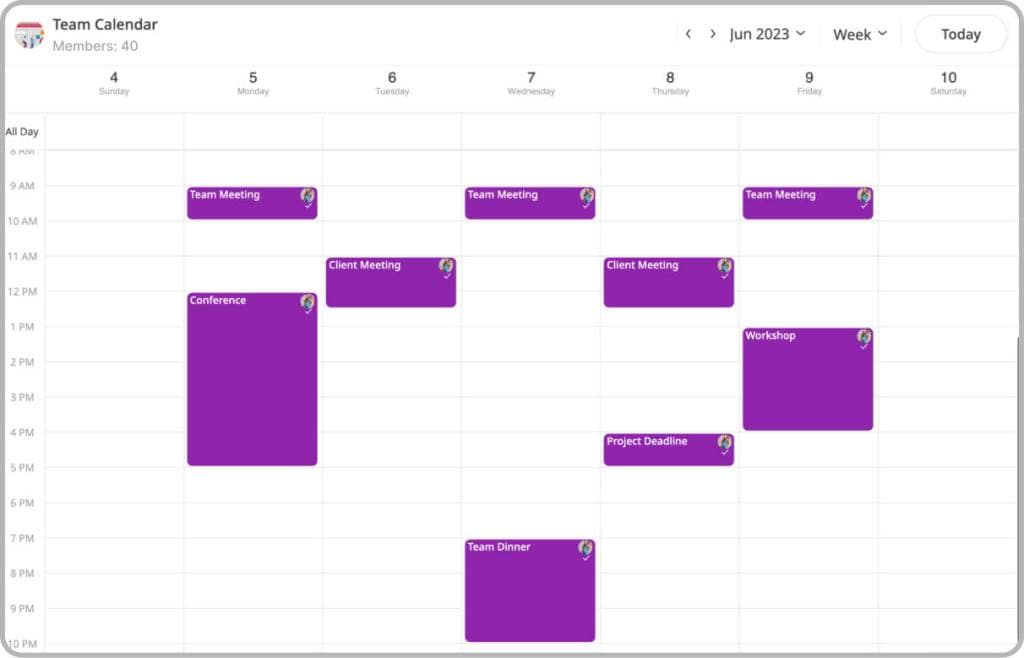
What is a team calendar?
A team calendar serves as a centralized calendar platform for scheduling and coordinating events within a team. It allows team members to view, create, and manage events, ensuring everyone is on the same page.
Importance of a Team Calendar app for Effective Collaboration
A team calendar is essential for fostering efficient coordination and collaboration. It promotes transparency, accountability, and effective communication among team members. The team, clients, and entire organizations reap the benefits of using shared team calendar apps.
- Effective Coordination, Collaboration, and Communication: Shared team calendars facilitate smooth workflows, reduce miscommunication, and ensure everyone is aligned with project timelines and objectives.
- Increase Productivity, Efficiency, and Teamwork: Centralized calendars optimize time management, resource allocation, and task distribution, resulting in improved productivity and enhanced teamwork.
- Promotes Transparency and Accountability: With shared team calendars, team members gain visibility into each other’s commitments and schedules, fostering transparency and accountability
- Reduces Scheduling Conflicts: Shared team calendars display everyone’s availability, making it easier to schedule meetings and appointments without conflicts.
Examples of Shared Team Calendars
Team Schedule Calendar
A team calendar is a powerful tool that can be utilized by various types of teams, whether they work in a traditional office setting, remotely as part of a company, or are involved in joint projects or campaigns. The primary purpose of a team calendar is to provide a centralized space for all shared events, making it easier for team members to stay organized and collaborate effectively. With a team calendar, each individual has control over their schedule, enabling them to add, edit, and manage events according to their needs. Whether it’s coordinating meetings, tracking project milestones, or simply staying aware of each other’s availability, a team calendar proves invaluable in maximizing productivity and enhancing group collaboration.
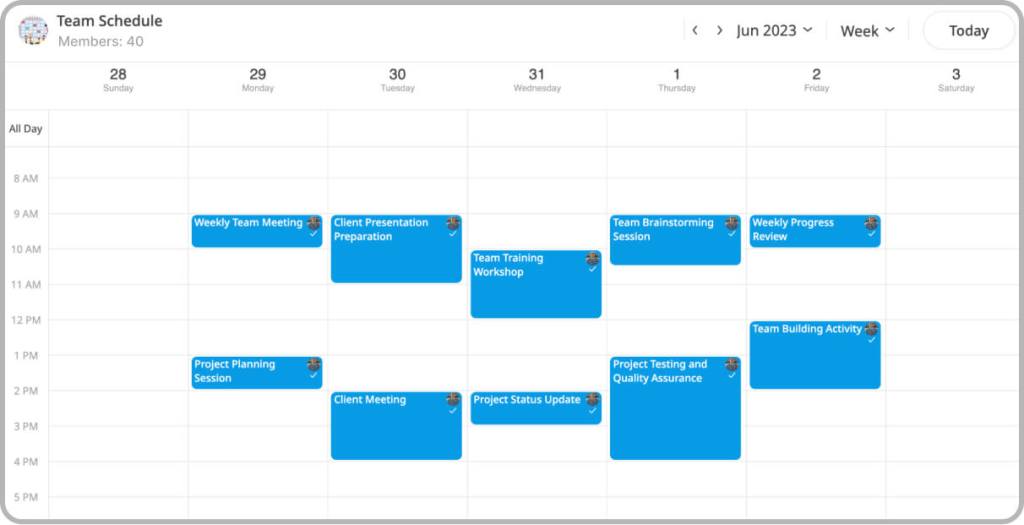
Project Deadlines Calendar
Managing project deadlines is crucial for a team’s success, and a shared calendar proves invaluable in this regard. By using a shared team calendar, teams can set and communicate project deadlines effectively. Each team member can access the calendar to see the timeline, dependencies, and upcoming milestones. This promotes a sense of accountability and enables the team to stay on track, ensuring timely completion of tasks and successful project delivery.
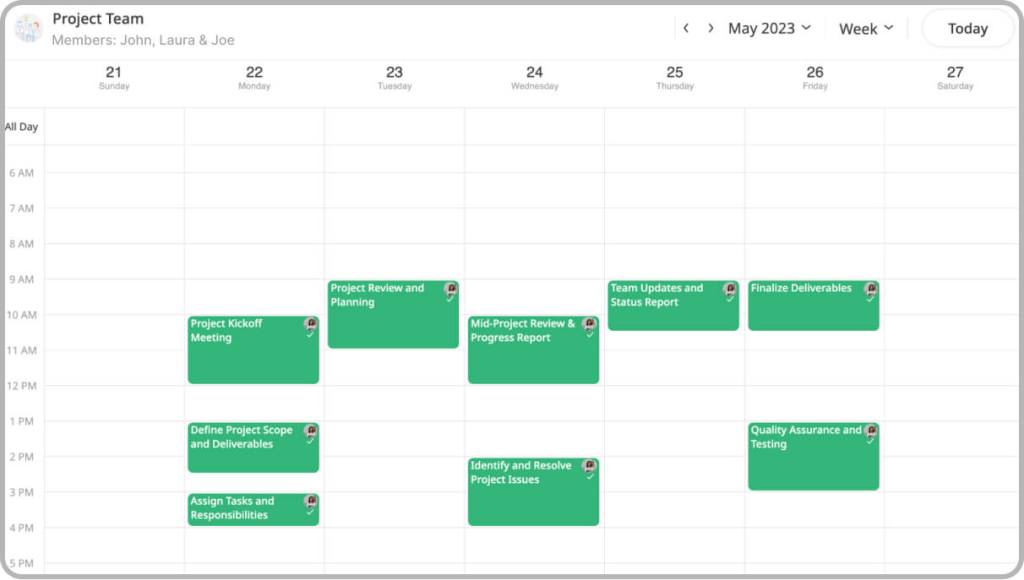
Client Meetings Calendar
Coordinating client meetings can be a complex task, especially when multiple team members are involved. A shared team calendar streamlines the process by providing a centralized platform where team members can schedule and track client appointments. The calendar allows for easy identification of available time slots, avoiding scheduling conflicts, and ensuring that client meetings are promptly organized. This enhances client communication and professionalism, leading to stronger client relationships.
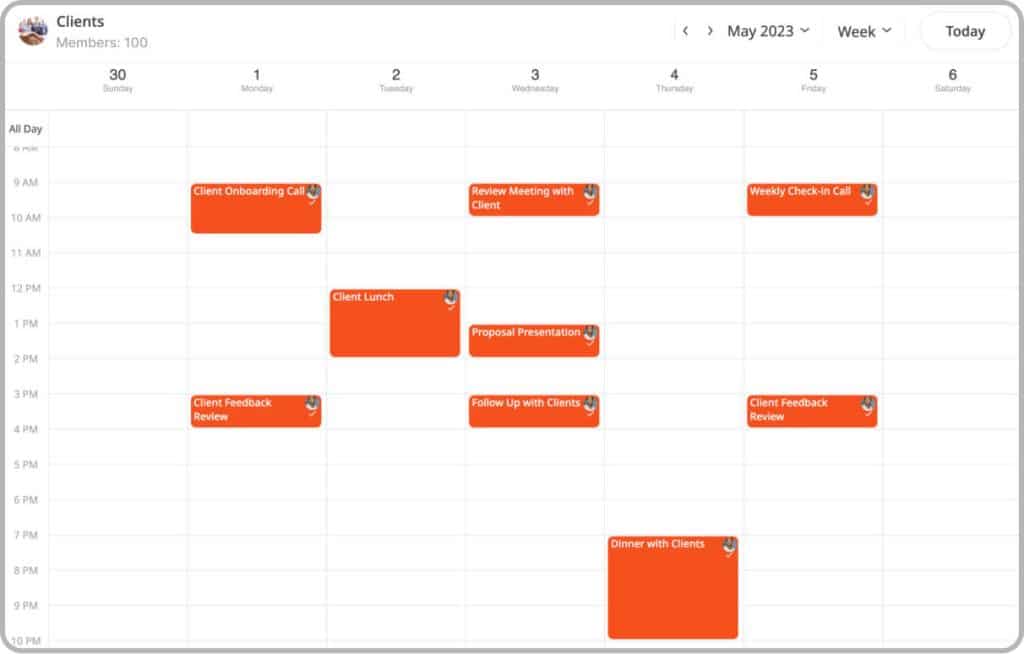
Team Events and Celebrations Calendar
A shared team calendar promotes a positive team culture by facilitating the planning and coordination of team events and celebrations. Whether it’s a team-building activity, a milestone celebration, or a social gathering, the calendar serves as a central hub where team members can view and contribute to upcoming eve
nts. This fosters a sense of camaraderie, boosts team morale, and strengthens the bond among team members.
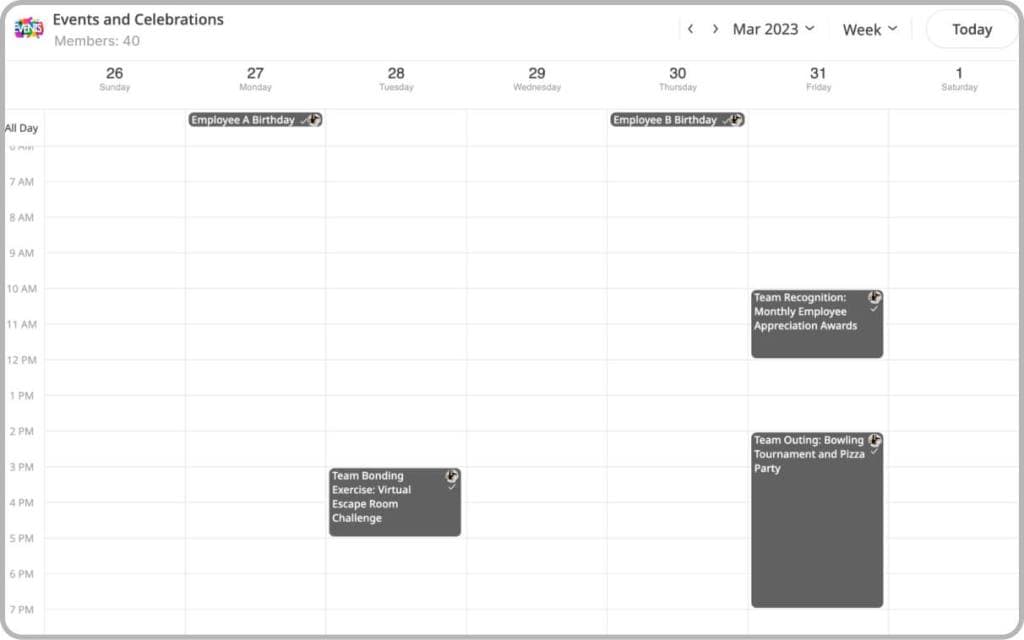
Conferences Calendar
Attending conferences and industry events is crucial for professional development and staying updated with the latest trends. A shared team calendar helps teams plan and coordinate conference attendance effectively. Team members can add conferences to the calendar, indicate their availability, and plan travel arrangements if needed. This ensures that team members can maximize their participation in conferences while minimizing any scheduling conflicts with other team commitments.
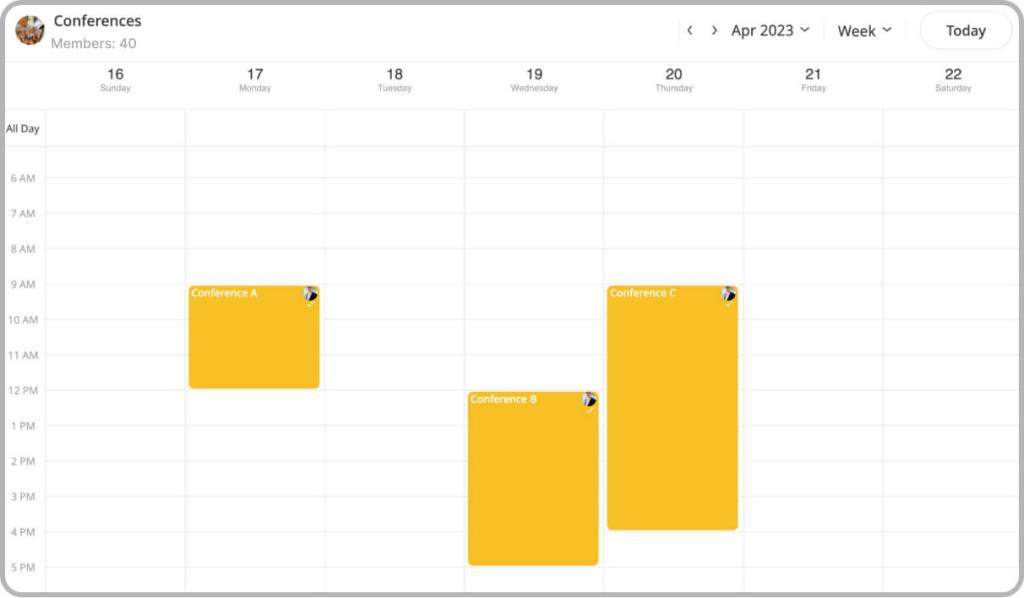
Vacation and Time Off Calendar
Managing team members’ vacation and time-off requests can be challenging without a shared calendar. With a shared team calendar, team members can easily indicate their planned vacations and time off, allowing others to see their availability at a glance. This enables better planning for project timelines, workload distribution, and resource allocation. Team members can confidently take time off, knowing that their absence is accounted for, and the team can adjust their schedules accordingly to maintain productivity.
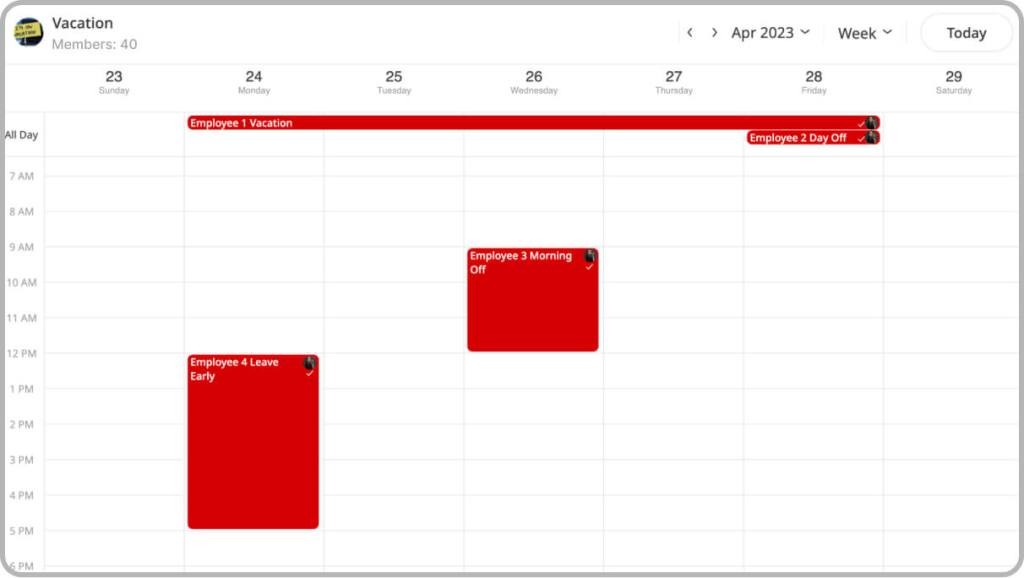
By utilizing a shared team calendar for these various events, teams can enhance coordination, improve communication, and boost overall efficiency, leading to better outcomes and a more cohesive work environment.
Google Team Calendar as a Shared Team Calendar – Limitations
While Google shared Calendar offers valuable features, it has some limitations that may impact its suitability for certain teams:
- Limited Customizations: Google shared Calendar has limited customization options, which may not meet specific team requirements. For example, it’s not possible to assign colors per member. It’s also not possible to add a profile picture on top of events to easily indicate who added the event or who owns it.
- Lack of Centralization: Integration primarily within the Google ecosystem may hinder collaboration with users of other calendar platforms.
- It’s not possible to join a Google Calendar shared calendar from a mobile device.
GroupCal as a Shared Team Calendar Solution
GroupCal offers teams a centralized calendar platform for coordinating and collaborating on scheduling and events. It ensures that everyone stays informed and on track by storing and sharing with everyone a calendar view of all events related to that calendar. It also sends real-time updates about changes to events, as well as event reminders notifications. One of the standout features of GroupCal is its ability to indicate changes clearly. Whenever an event is added or updated, GroupCal highlights the type of change, providing members with clear visibility.
Another key feature of GroupCal is its support for multiple shared calendars. Teams can create different calendars for various topics or projects, allowing for better organization and separation of events. With real-time synchronization and event notifications, all team members have visibility into the calendars, ensuring everyone is on the same page.
In addition to its collaborative capabilities, GroupCal offers advanced permission management. Team admins can assign specific permissions to individuals, controlling who can view, edit, or manage events within the shared calendars. This feature enhances privacy and access control, providing teams with fine-grained control over their calendar settings.
To further enhance the user experience, GroupCal allows members to personalize their events. Users can assign colors to different members, making it easy to identify who owns each event. Additionally, each member can indicate their name and photo on events, providing a visual representation of event ownership. This feature adds clarity and makes it effortless to see at a glance who is responsible for each event.
Lastly, GroupCal seamlessly integrates with popular calendar apps like Google Calendar, Outlook, and Apple Calendar. This integration enables users to synchronize events across different platforms, ensuring seamless connectivity and eliminating the need for manual updates. By integrating with these widely-used calendar apps, GroupCal offers flexibility and convenience to teams who may already be using these platforms.
In summary, GroupCal is a powerful shared team calendar solution that offers a range of features to enhance coordination and collaboration. With its real-time updates, multiple shared calendars, advanced permission management, event customization options, and seamless integration with popular calendar apps, GroupCal provides teams with a comprehensive platform for efficient scheduling and event management.
Shared team calendars revolutionize coordination, enhance productivity, and facilitate effective collaboration among team members. While Google Shared Calendar offers valuable features, alternative solutions like GroupCal provide additional customization options and integration capabilities. By embracing shared team calendars, teams can optimize workflows, improve coordination, and achieve their goals with ease.